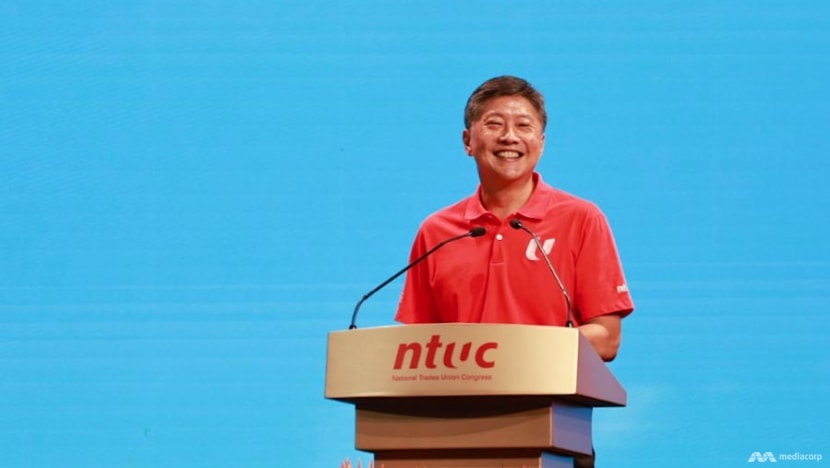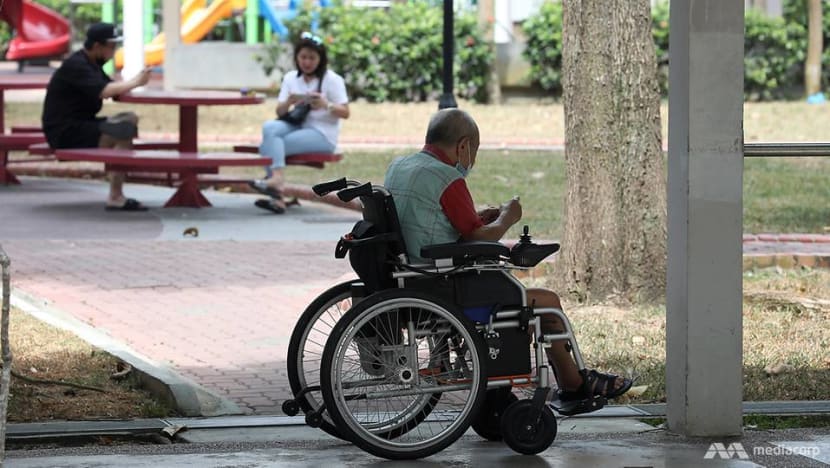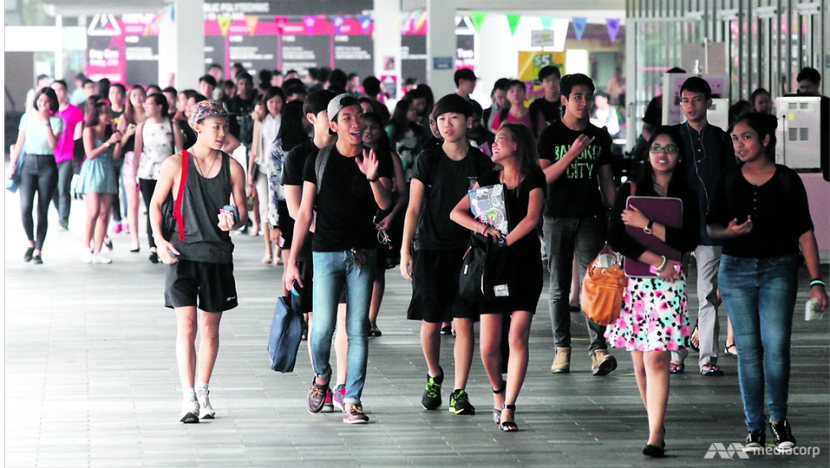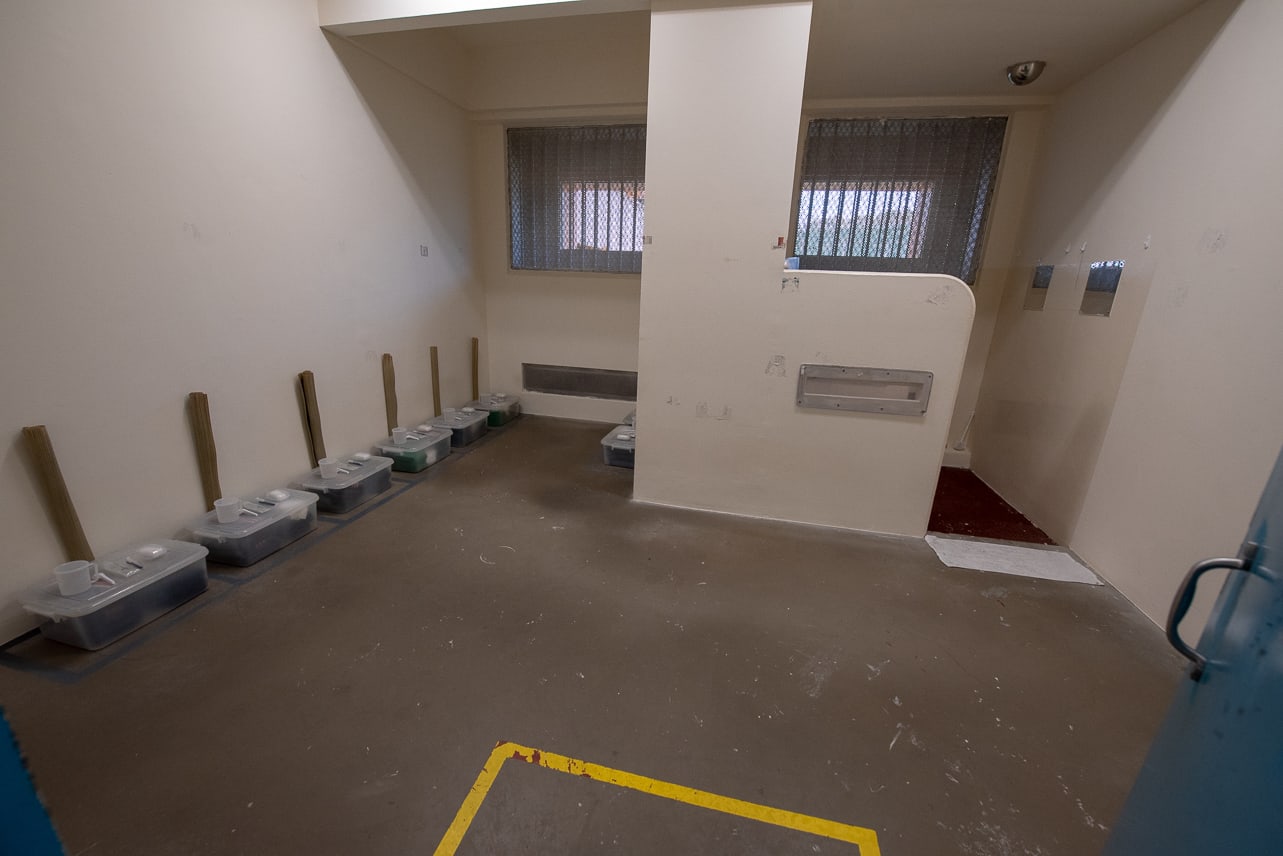Flexible work arrangements a key focus of Singapore’s new workers compact: Labour chief Ng Chee Meng
The labour movement has engaged close to 40,000 workers in the past year to find out their concerns and challenges, National Trades Union Congress (NTUC) Secretary-General Ng Chee Meng told CNA in an exclusive interview.

SINGAPORE: Flexible work arrangements will be a key focus as the labour movement comes up with a new compact for workers here, said labour chief Ng Chee Meng.
The Secretary-General of the National Trades Union Congress (NTUC) also said that more attention will be given to younger people, a segment he described as “underserved” by the labour movement.
It has engaged close to 40,000 workers in the past year to find out their concerns and challenges faced, Mr Ng told CNA in an exclusive interview.
“I think we are making good progress in the workers compact, but there will be some coordination needed as we finalise and consolidate the report. We want to share this with our tripartite partners, both the employers and very importantly, the government,” he said.
This ensures that workers’ voices are heard as Singapore’s fourth generation, or 4G, of political leadership forges a new social compact for the country.
FLEXIBLE WORK ARRANGEMENTS
Flexible work arrangements (FWAs) will be a focus in the new workers compact, as NTUC looks to better define the type of work and salaries to help specific groups such as caregivers.
He said the labour movement empathises with their needs, especially those of working mothers, noting that they face stresses from “the pressures of work, career and sometimes not just aged parents, but kids as well”.
“We think that flexible work arrangements, structured and flexible, in a more negotiable fashion with employers where both sides have a good understanding of what FWA means (and) how we can tailor needs, would be very helpful,” said Mr Ng.

He said the concept of flexible work arrangements is a “pain point” that many caregivers have shared about.
“It is still somewhat in a grey zone, where the employers need to meet their business obligations and caregivers need to balance between family commitments and earning,” he said.
FOCUS ON YOUTH
Mr Ng also identified youths as a key target group for the labour movement to do more, as the segment has been traditionally “underserved”.
These are young people coming out of school and national service who will form the future workforce, he said.
“I think that, humbly, we have underserved this segment. In the development of the last 50 years, we have focused very much on the workers in need. From the rank-and-file, now to the freelancers (and) to the PMEs (professionals, managers and executives),” he said.

The NTUC has already engaged about 10,000 of them to hear their views.
Among the needs they have expressed are better career opportunities, workplace adaptation, finances and mental well-being, said Mr Ng.
“And specific to these career aspirations, we are starting the career starter lab pilot to see how we can value-add in this space," he added.
Mr Ng noted that the labour movement engages workers across a broad spectrum, sharing that he has also visited the prisons to meet with some inmates.

“Now we are also looking at how to facilitate Yellow Ribbon, to move some of these sisters and brothers back into a productive workforce,” he said, referring to the organisation which helps ex-inmates find a fresh start in life.
“So we have made good progress in these spaces. We hope to do not just the conversation, but take concrete action in the next phase of Singapore's development."
















